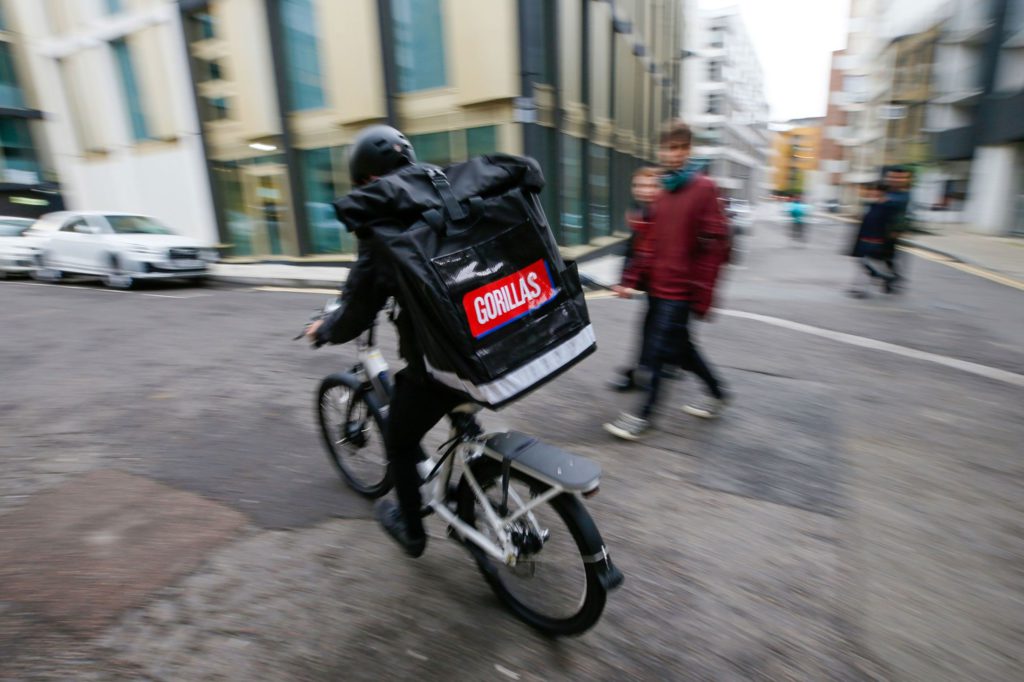(Bloomberg) — Gorillas Technologies GmbH, seeking to navigate a sudden shift in the startup funding environment, met with competitors in the rapid delivery industry to discuss the prospects for mergers or the sale of its business, people familiar with the talks said.
Representatives for the German startup spoke with multiple companies, including Gopuff and Jokr, about a possible deal, said the people, who asked not to be identified because the talks are private. Some of those conversations took place in the last several weeks. Gorillas is working with advisers from JPMorgan Chase & Co. to evaluate options, some of the people said.
The talks were exploratory, and it’s possible no transaction materializes. But they underscore the challenges facing all startups this year as venture capitalists put many investments on hold over fears of an economic recession. The problem is especially acute for the young class of delivery startups that amassed customers but rapidly burned capital by promising groceries at your doorstep within minutes.
Representatives for Jokr, JPMorgan, Gorillas and Gopuff declined to comment.
Initially buoyed by demand from couch-bound customers early in the Covid-19 pandemic, rapid delivery companies raised $9.7 billion globally in 2021, according to the research firm PitchBook. However, the sector has begun to contract amid rising pressure from investors to demonstrate profitability. The change was driven by a plunge in public technology stocks and signs of economic concern, including rising inflation and interest rates.
Co-founded in May 2020 by Chief Executive Officer Kagan Sumer, Gorillas last raised $1 billion in October that valued the business at about $3 billion. In February, Sumer told Bloomberg that he planned to take in $700 million or more in new financing this year to help recalibrate the business for profitability.
Then last month, the company slashed office staff by half and said it will explore strategic options for various non-core markets where it operates. Gorillas is burning as much as $80 million a month, said two people with knowledge of its finances who asked not to be identified because they weren’t authorized to discuss the information.
Read more: Gorillas Startup Dream of Food Delivery and Office Raves Falters
The company, which halted expansion to other US cities like Los Angeles and Chicago in the fall to focus on building its footprint in New York, is now pumping the brakes there, too, the people said. Plans to open additional warehouses in New York are on hold, they said.
Gorillas entered New York last year and has benefited from the recent implosion of rivals by taking over some of their warehouses, known as dark stores. Still, Gorillas has struggled to keep busy its network of delivery couriers — many of whom enjoy full-time employment benefits — partly because the company reduced the discounts it offers to customers, the people said. As a result, Gorillas cut hours for some delivery drivers and is increasingly opting to hire on a part-time basis.
More stories like this are available on bloomberg.com
©2022 Bloomberg L.P.











